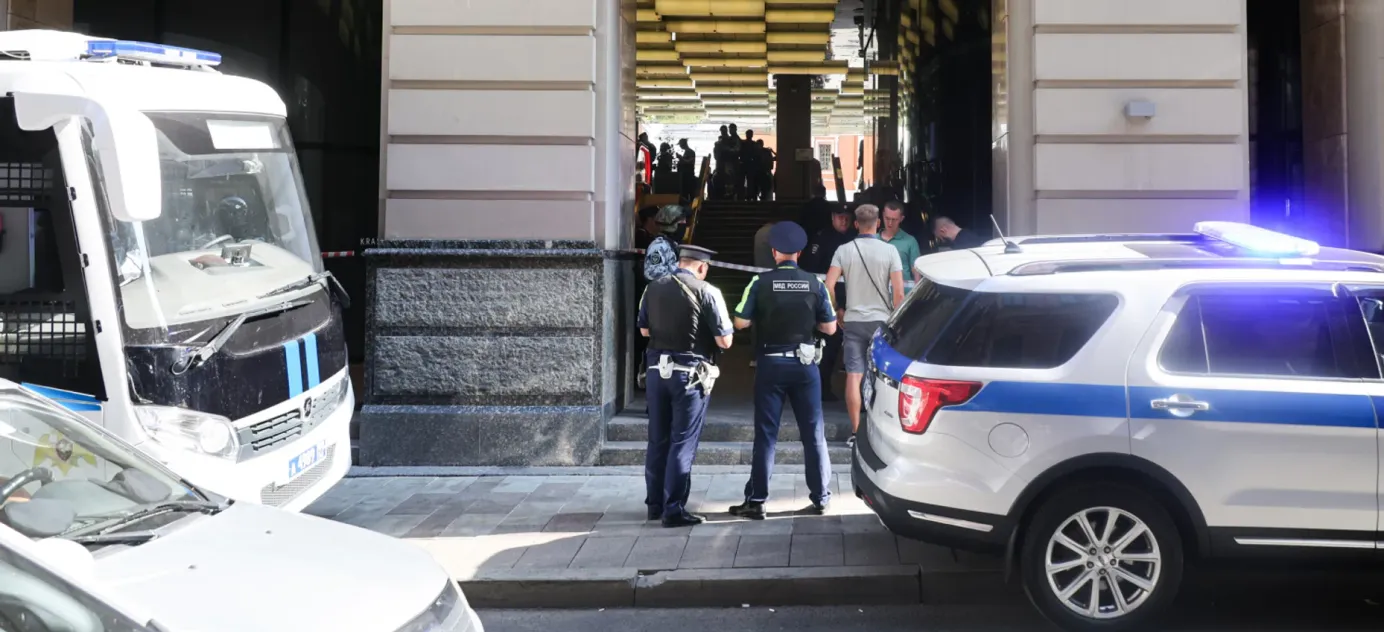
Shootout at Wildberries: Who’s who in the battle for Russia’s Amazon
The saga of the Bakalchuks, the co-founders of Wildberries, Russia’s leading online marketplace, escalated dramatically last week, entering a new and dangerous phase. A brazen attempt by Vladislav Bakalchuk to storm the company’s Moscow headquarters turned into a shootout which killed two people and saw more than 30 arrested. Bakalchuk himself walked free. His lawyers say investigators found no evidence of criminal wrongdoing and that the charges against him, including a murder rap, were dropped. That development was nearly as dramatic and unexpected as the fact that an armed standoff over control of Russia’s top online retailer could take place 300 meters from the Kremlin. The story is far from over. Now the power struggle between husband and wife Vladislav and Tatyana Bakalchuk has escalated into a war between their patrons — Chechen leader Ramzan Kadyrov and Dagestan’s billionaire senator Suleiman Kerimov.
- Suleiman Kerimov’s interest in the future of Russia’s leading online marketplace burst into the public domain months ago, before anything was known of the corporate and personal rift between Vladislav and Tatyana Bakalchuk. Back in June, Wildberries announced a highly unexpected merger with the Russ group, Russia’s largest outdoor advertising operator. Kerimov has been reported to be the main financial backer of Russ, although its founder, Robert Mirzoyan, denies that. There were many oddities in the proposed deal: not only the apparent mismatch between the companies’ scales and potential growth, but the announcement was published at 8pm and did not contain a single concrete term about the specifics of the deal.
- Details of how the deal came about eventually started trickling out. Sources told The Bell that Kerimov got to know Tatyana Bakalchuk (who controlled 99% of Wildberries and said Monday she was reverting to her maiden name of Tatyana Kim) after a major fire in January gutted one of its warehouses. The facility had reportedly not been officially declared as in use or inspected by fire regulators — developments that created problems for Wildberries with the security services. A criminal case was opened at the time, but there have been no further updates or arrests. Kerimov then set up a meeting between Bakalchuk, Mirzoyan, and the head of the presidential administration Anton Vaino, which was followed later by a meeting with President Vladimir Putin. Putin was presented with the idea that a merger between Wildberries and Russ would enable the creation of a new international payment system, based in rubles and that would bypass SWIFT. The company would be a “strong rival” to Google and Amazon, capable of boosting Russia’s GDP by 1.5%, the sides in favor of the merger argued. Putin approved the idea and put his economic aide, Maxim Oreshkin, on the case. Vladislav Bakalchuk was against the deal from the start, but had a weak hand. He owned just 1% of Wildberries and his other company, BV Development had lost contracts for the construction of 32 Wildberries and was facing multibillion-ruble fines for failure to meet contractual obligations.
- Kerimov is one of the most secretive and dangerous Russian billionaires who has extensive experience in crisis management. He has a knack for entering into deals with businesses facing challenging circumstances, flipping them for a profit at the earliest opportunity. For example, in 2010 Kerimov purchased Dmitry Rybolovlev’s Uralkali just as its previous owner was falling out of favor. Three years later he sold it on to structures linked to Mikhail Prokhorov and Dmitry Mazepin. Kerimov is also no stranger to violent showdowns — in the 2000s staff at his Nafta-Moskva investment holding arrived with steel bars to take over a rival office in the Russian capital.
- Despite all his menace and danger, Kerimov also knows how to charm. At one time he managed to persuade Sberbank, Russia’s biggest state bank, to lend him billions to buy his own shares, using them as collateral to assemble a $15 billion portfolio of Russian blue chips in the 2000s. He later sold them, switching to focus on the US market and nearly being wiped out in the 2008 financial crisis. But once again, connections and Russian state banks helped him out of the abyss. By 2020 he had regained his place among the top 10 wealthiest Russians and now controls Russia’s biggest gold producer, Polyus.
- Among other things, Kerimov enjoys legal immunity conferred by his status as a Russian senator. During his 16 years in office, he has never once introduced a bill. According to Ilya Shumanov, head of Transparency International Russia, he uses the role purely for its status.
- Vladislav Bakalchuk’s protection and backer in the conflict is Ramzan Kadyrov, the hardline leader of Chechnya for the past 20 years. For the first couple of months, Kadyrov’s visible support was limited to a post on social media criticizing the Wildberries-Russ deal as a “raid”. Vladislav was also backed by famous Russian rapper Timati and Chechen MP Adam Delikhanov. The attempted seizure of the Moscow office was probably Vladislav’s attempt to grab the initiative, but he did not anticipate that forces from Kerimov and his junior partners would put up armed resistance, a source told The Bell. And while Kadyrov promised to “protect the legitimate business” of his “friend” (nobody has so far explained how they met and became friends), publicly the Chechen leader has said nothing about the shootout. On his Telegram channel, Kadyrov has appeared more interested in the victory of the Chechen team at a tug-of-war competition.
- A source with links to the security services told The Bell that Vladislav Bakalchuk’s request for help in the dispute with his wife was welcomed by Kadyrov, whose tense relationship with Kerimov pre-dates the Wildberries saga. But now, the source added, the battle for Wildberries is escalating into a full-scale war between the two sides.
Why the world should care
The way in which business conflicts are resolved undoubtedly contributes to wider instability in Russia. The man who bears most responsibility for a shootout that killed two people just a few hundred meters from the Kremlin — Vladislav Bakalchuk — has walked free, for now. Although those who fired the bullets were arrested, they could feasibly go straight from jail to the army. Even in a land governed by the principle that “might makes right”, having a powerful backer outside the security agencies can still resolve many problems — and who knows how many similar confrontations will arise in Russia in the future.





